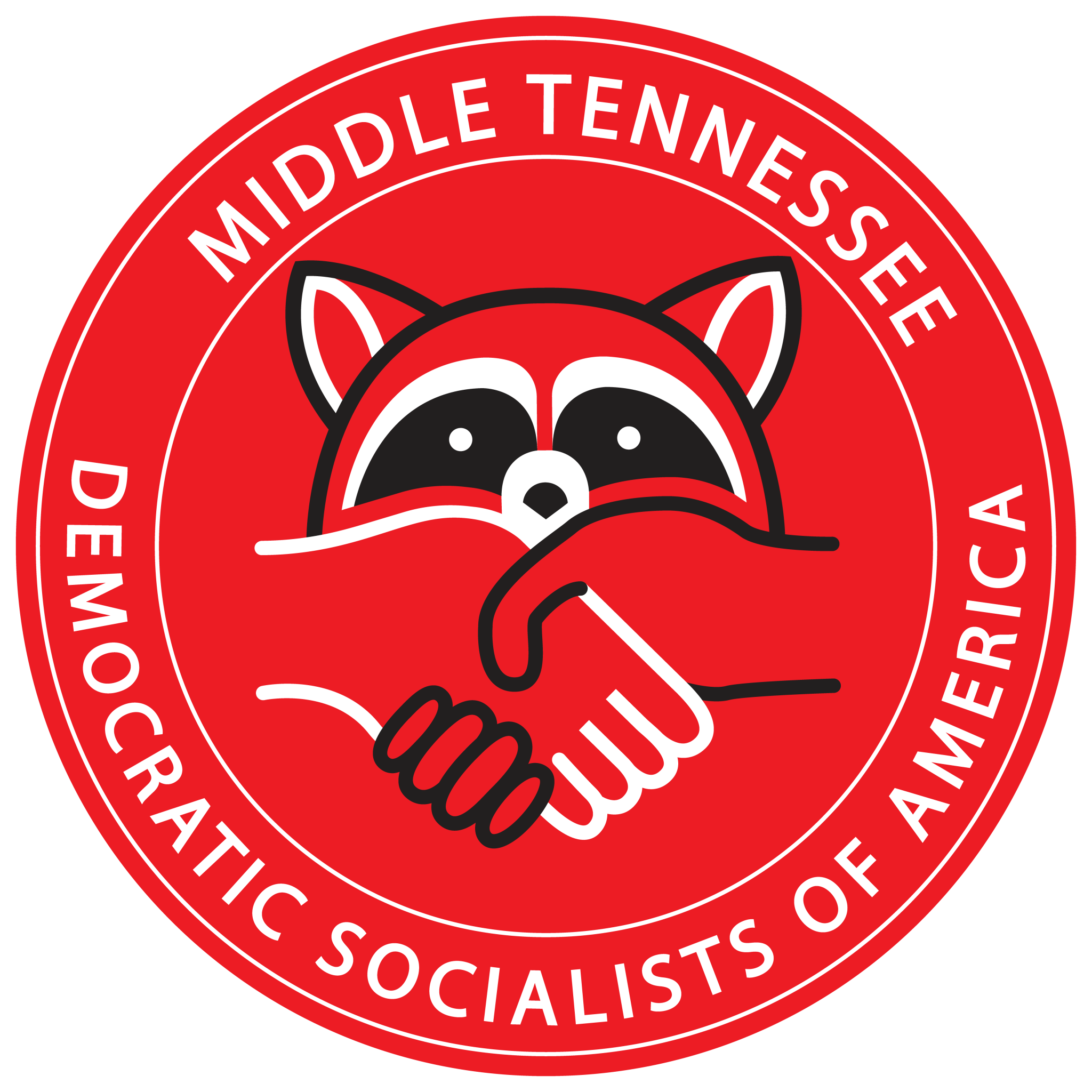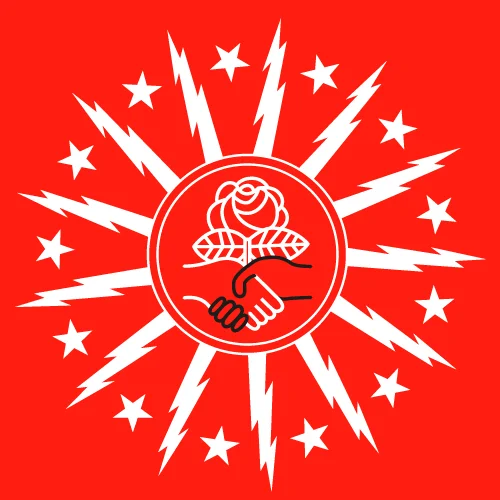
Green New Deal Earth Day Special Part I
In part one of our two hour Earth Day special we’re talking about what everybody is talking about these days, the Green New Deal and how it relates to the broader movement for democratic socialism.
We begin with a historical analysis of the original New Deal and how class struggle forced capitalists to give in to workers’ demands for a more just society. Then we’ve got Sarah Lyons in the studio with us right now to break down a recent Green New Deal town hall that happened in the Bronx with Congresswoman Alexandria Ocasio-Cortez. We’ll also be hearing from Tom Pike, a Democratic Socialist of America organizer in Los Angeles about their campaign to shut down fracked gas power plants.


The Warsaw Uprising Anniversary, Part 1: Irena Klepfisz, Jewish Lesbian Poet and Activist

Rent Control in the Time of Crisis

Healthcare at the Intersection


Middle Tennessee DSA Demands No Police at Pride

It was illegal to be queer in 1969. Homosexuals – as we were all called then – were labeled dangerous and subversive deviants. We were tracked and surveilled by the FBI, considered security risks by the national security apparatus, and rounded up and driven out of cities and into ghettos. Queer spaces were regularly raided by the police; their arrestees humiliated, brutalized, and even tortured. Many of our people lived in abject poverty, especially those who did not conform to the narrow gender constructs of a hostile society.
This was America on June 28, 1969, when ten police officers entered a bar in Greenwich Village called the Stonewall Inn with the intent to arrest anyone suspected of “deviancy.” The patrons of Stonewall were divided along perceived gender lines. Cross-dressers, a dated term which included what we now call drag queens and transgender individuals, were separated from the rest and forced to expose themselves to police officers. Women in butch clothing were groped and violated under the guise of frisking; a common practice, as wearing an insufficient number of feminine items of clothing was considered a crime. Anyone found to be in violation of rigid gender norms was arrested on the spot.
When the arrestees refused to cooperate, they were brutalized. When one woman protested her treatment, she was beaten over the head with a baton. As outrage grew among the crowd gathering to witness this injustice, what began as a routine crackdown quickly escalated to two days of violent resistance we now call the Stonewall Riots. It is this event we commemorate every year with the celebration of Pride.
Standing on the shoulders of generations before it, Stonewall marked the beginning of the modern struggle for LGBTQ+ equality and, ultimately, liberation. Though Obergefell v Hodges opened the door to an unprecedented era of queer rights and visibility, reactionary efforts to erase these victories have grown just as pronounced. From a ban on transgender people in the military, to a multitude of religiously justified discrimination bills, to homegrown attempts to roll back marriage rights, all under the watch of an increasingly conservative judicial system, we stand to lose everything we have fought so hard to win.
At every stage of this ongoing struggle, the police, as the sanctioned enforcers of the state, have been our opposition and our oppressors. Indeed, it will be the police who drag us out of bathrooms and business places in shackles, who will harass us when our name or gender markers don’t match our “biological sex,” who will drive us into ghettos when we can’t find work. Why, then, are the police permitted a place at the 50th anniversary of the riot that birthed our movement?
The Nashville Metropolitan Police Department has ridiculed transgender members of our community; fought viciously against community oversight voted by a majority of our city; targets, oppresses, and murders black and brown people; and works in direct cooperation with ICE to tear families apart. We refuse to welcome our oppressors at a table ostensibly set to celebrate our hard-won and still-besieged liberties. It is therefore, in the spirit of the Stonewall Riots that we, the undersigned members of the Middle Tennessee Democratic Socialists of America, call for the Metropolitan Nashville Police Department’s booth to be disinvited and summarily ejected from Nashville Pride.
Middle Tennessee Democratic Socialists of America Queer Working Group

Ca$h for Socialism - How and Why?

Media in Late-Capitalism
The media industry is in peril, but this is felt most acutely for exploited workers and for the audience who are left wanting for real journalism and genuince content. In this show, we talk with @hunterboone, @jamie_elizabeth (from @the_antifada) about the current problems in the media industry, unionization efforts, and the capitalist contradictions in media/journalism.


Buffalo NNAF Bowl-A-Thon
Donate Here: New York Abortion Access Fund
Saturday, April 6th, 2019
2:00 to 4:00 pm
Classic Lanes
1840 Military Rd
Buffalo, NY 14217
We’re lacing up our bowling shoes and getting to work! Help us to #FundAbortionBuildPower. Your participation could be the difference between someone getting the abortion they need, and being forced to go without.
Send a message that you believe we all should be able to access abortion no matter how much money we make or where we live. Join us on April 6th to bowl for abortion access!

Avoiding Green New Capitalism


Gimme a Brake: Brake Light Clinic
Saturday, May 4, 2019
10 am – 3 pm
SEIU/1199 Main St. Office
2421 Main St, Buffalo, New York 14214
Come on out and have volunteers from Buffalo DSA change your brake light for FREE! Free coffee, doughnuts and legal advice while you wait.
This is our 4th Brake Light Clinic and each light replaced reduces the likelihood of interaction with the police.